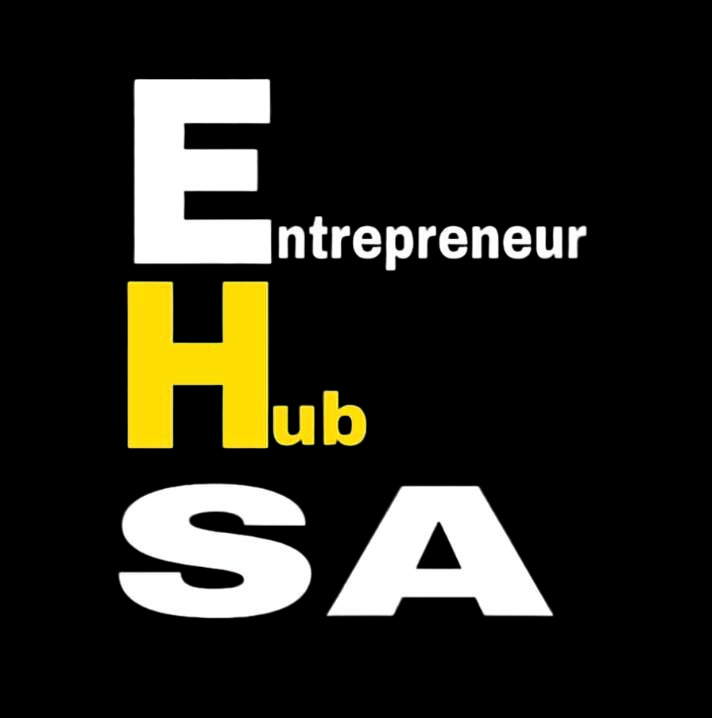Education is the key to success, unlocking doors to endless opportunities and empowering individuals to shape their futures. Whether through formal schooling, hands-on experiences, or lifelong learning, education equips us with the skills, knowledge, and critical thinking needed to overcome challenges and seize possibilities. It’s not just about degrees or certificates—it’s about cultivating a mindset that values growth, adaptability, and innovation.
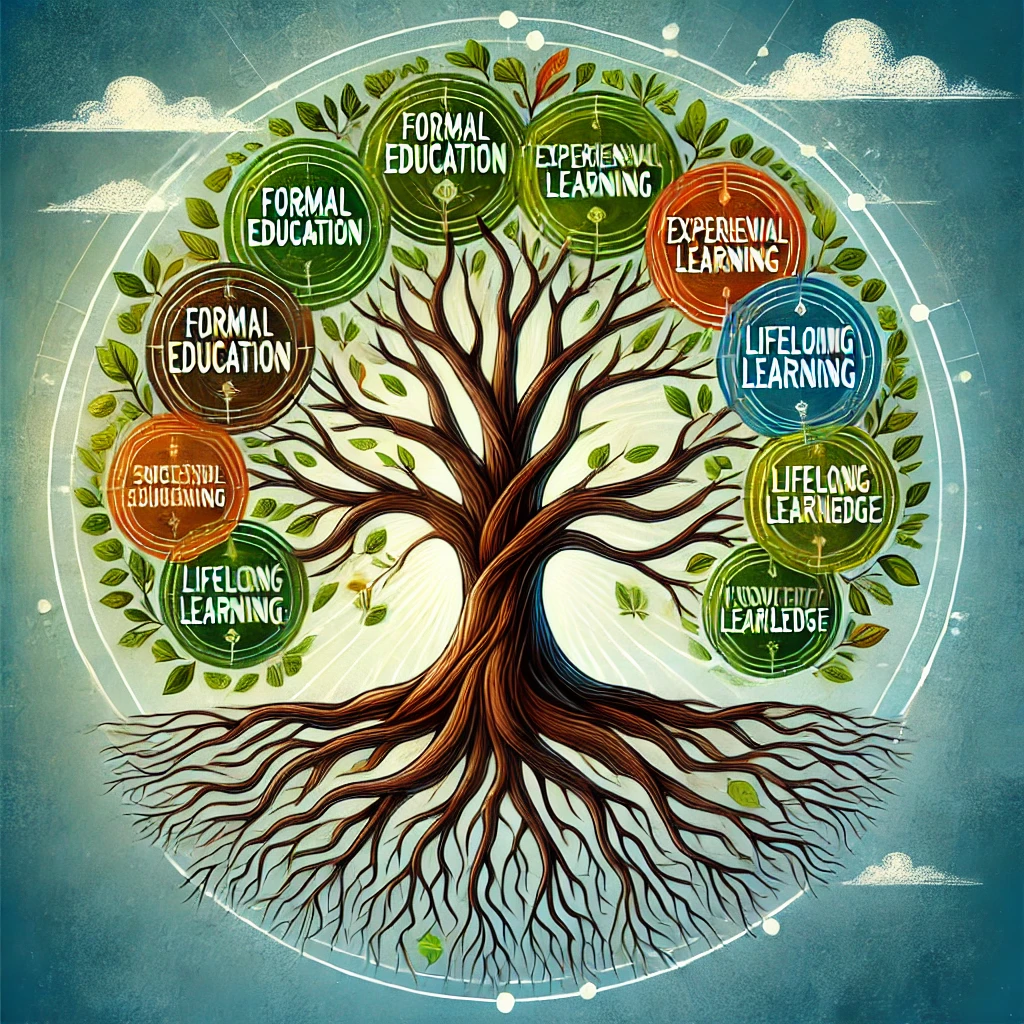
“Education is the most powerful weapon which you can use to change the world,” Nelson Mandela once said. While his words often echo through discussions on formal education, the reality is that education in its many forms—scholastic, experiential, personal, and professional—serves as a gateway to personal growth and societal advancement. Education transcends classrooms and textbooks; it embodies the pursuit of knowledge, skills, and wisdom needed to navigate life’s complexities.
In this article, we’ll explore how education in its broadest sense equips individuals with the tools to achieve success. From fostering critical thinking to driving innovation, empowering social mobility, and cultivating resilience, education lays the foundation for a life of purpose and accomplishment.
Scholastic Education: Building the Basics
Formal education provides a structured environment where individuals learn foundational skills that serve as the bedrock for further growth. Reading, writing, mathematics, and sciences taught in schools offer the tools to comprehend and analyze the world. Beyond these basics, formal education fosters curiosity and introduces students to diverse disciplines, allowing them to discover their passions and strengths.
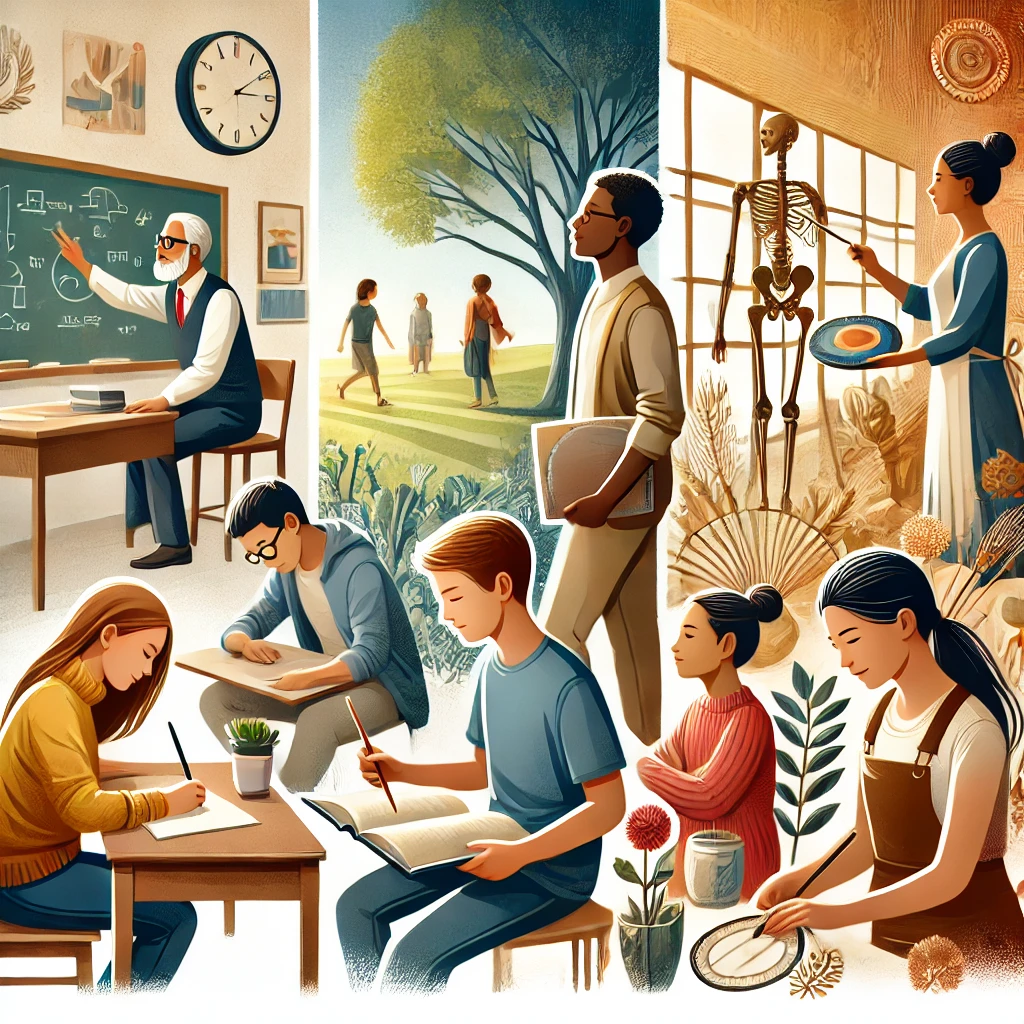
For example, a student may uncover a love for engineering through a physics class or realize their leadership potential during group projects. These experiences ignite ambition and encourage learners to pursue fields that align with their talents. Additionally, certifications and degrees often act as passports, opening doors to job opportunities, promotions, and economic stability.
Experiential Education: Learning Beyond the Classroom
While formal education is critical, experiential learning—gained through life experiences—is equally valuable. Life teaches lessons that no textbook can. For instance, starting a business teaches resilience, financial management, and problem-solving. Traveling exposes individuals to new cultures and ways of thinking, fostering adaptability and empathy.

Consider the case of entrepreneurs like Richard Branson, who built empires without formal higher education. Branson attributes much of his success to experiential learning—taking risks, learning from failure, and continuously adapting to change. His journey underscores that education isn’t confined to classrooms; it’s a lifelong process fueled by curiosity and action.
Lifelong Learning: Staying Relevant in a Changing World
The modern world evolves rapidly, with technological advancements and global trends reshaping industries and societies. Lifelong learning ensures individuals remain adaptable and competitive. For example, professionals who continuously update their skills—whether through online courses, certifications, or workshops—are better equipped to navigate career transitions or advancements.

Lifelong education also cultivates intellectual curiosity and personal growth. Whether it’s mastering a new language, delving into philosophy, or learning to code, ongoing education enhances cognitive abilities, self-confidence, and fulfillment.
Soft Skills: The Unseen Pillars of Success
Education isn’t just about acquiring hard skills like technical knowledge or industry expertise. It’s equally about developing soft skills—communication, emotional intelligence, time management, and teamwork. These attributes, often learned through experience, mentorship, and self-reflection, are indispensable in building relationships and leading effectively.
For instance, a manager’s ability to empathize with team members and resolve conflicts can determine the success of a project or organization. These skills, nurtured through continuous learning and interpersonal interactions, highlight the broader definition of education.
Critical Thinking and Problem-Solving: The Hallmarks of Success
Education fosters critical thinking—the ability to analyze, evaluate, and synthesize information to make informed decisions. This skill is vital in both personal and professional contexts. Whether solving a business challenge, making investment decisions, or navigating ethical dilemmas, critical thinking empowers individuals to approach problems logically and creatively.
For example, professionals in fields like medicine, law, and technology rely heavily on their ability to think critically under pressure. However, critical thinking isn’t limited to advanced careers; it’s a skill cultivated through reading, discussion, and reflection—activities accessible to anyone committed to learning.
Education as a Social Equalizer
Education is one of the most powerful tools for breaking cycles of poverty and inequality. Access to quality education enables individuals from disadvantaged backgrounds to achieve upward mobility. Scholarships, vocational training, and community programs provide opportunities for people to learn skills that transform their lives.
Consider the story of Malala Yousafzai, who championed girls’ education despite societal and political challenges. Her advocacy highlights how education empowers marginalized groups, enabling them to overcome barriers and contribute meaningfully to society.
Innovation and Economic Growth
Education is a cornerstone of innovation and economic progress. Societies that prioritize education produce skilled workforces capable of driving technological advancements and solving global challenges. For instance, Silicon Valley thrives because of its ecosystem of highly educated professionals, cutting-edge research institutions, and an entrepreneurial spirit fostered by continuous learning.
On an individual level, education equips people with the creativity and adaptability needed to innovate. Entrepreneurs, scientists, and artists alike draw on their educational experiences to push boundaries and create value.
Personal Fulfillment and Well-Being
Beyond career success, education contributes to personal fulfillment and mental well-being. Learning new skills or exploring new topics can spark joy, reduce stress, and enhance one’s sense of purpose. For instance, someone who pursues painting as a hobby learns self-expression and emotional regulation.
Moreover, education promotes health literacy, enabling individuals to make informed decisions about their well-being. From understanding nutrition to managing finances, education equips people with the knowledge needed to lead balanced, fulfilling lives.
Civic Responsibility and Social Impact
Education shapes not only individuals but also communities and nations. An educated population is more likely to engage in civic activities, from voting to volunteering. Education fosters empathy, cultural awareness, and a sense of social responsibility, encouraging individuals to address global challenges like climate change, inequality, and public health crises.
For instance, climate activists like Greta Thunberg have drawn on their education to inspire change. By raising awareness and advocating for sustainable practices, they demonstrate how knowledge empowers individuals to make meaningful contributions to society.
Challenges to Accessing Education
Despite its transformative power, access to education remains unequal globally. Barriers such as poverty, gender inequality, and political instability prevent millions from accessing quality education. Addressing these challenges requires collective efforts from governments, NGOs, and communities.

Investing in education infrastructure, teacher training, and digital tools can bridge gaps and make learning accessible to all. Moreover, redefining education to include diverse learning pathways—such as vocational training and online programs—can cater to varied needs and circumstances.
Education Is the Key to Success: Unlocking Opportunities for Growth
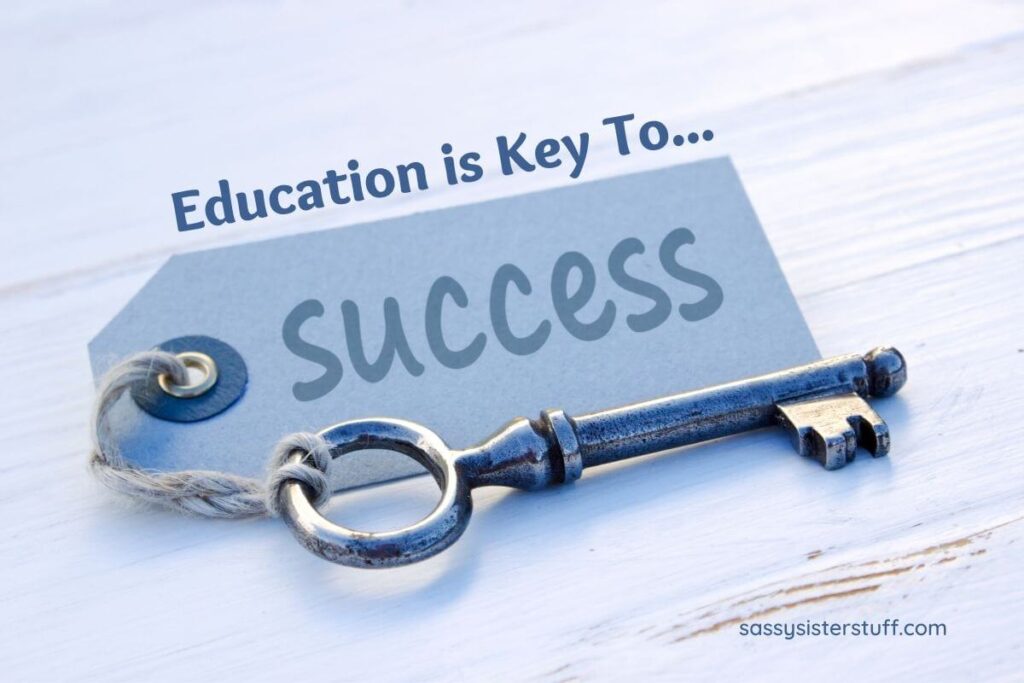
Education is the key to success because it provides the foundation for achieving personal, professional, and societal growth. It equips individuals with critical skills, from problem-solving to effective communication, empowering them to navigate challenges and seize opportunities.
Whether through formal education or experiential learning, education fosters self-confidence and resilience, opening the doors to a brighter future.
The Rise of Lucky Star Pilchards: SA’s Leading Canned Fish Brand
Conclusion
Education, in all its forms, is undeniably the key to success. It empowers individuals to dream, innovate, and adapt. Whether through formal schooling, experiential learning, or lifelong self-improvement, education equips people with the tools to thrive in an ever-changing world.
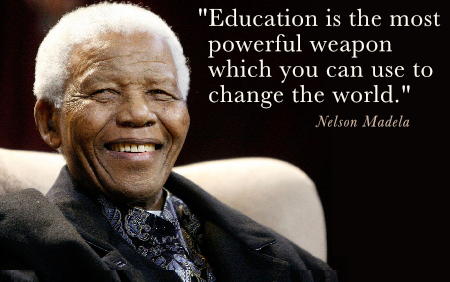
As Nelson Mandela so aptly said, “Education is the most powerful weapon which you can use to change the world.” Embracing education in its broadest sense ensures that we unlock not just our own potential but also contribute to the betterment of society. In every sense, education is the key to success.
Get the latest entrepreneurial success stories, expert tips, and exclusive updates delivered straight to your inbox — Sign up for Entrepreneur Hub SA’s newsletter today!

